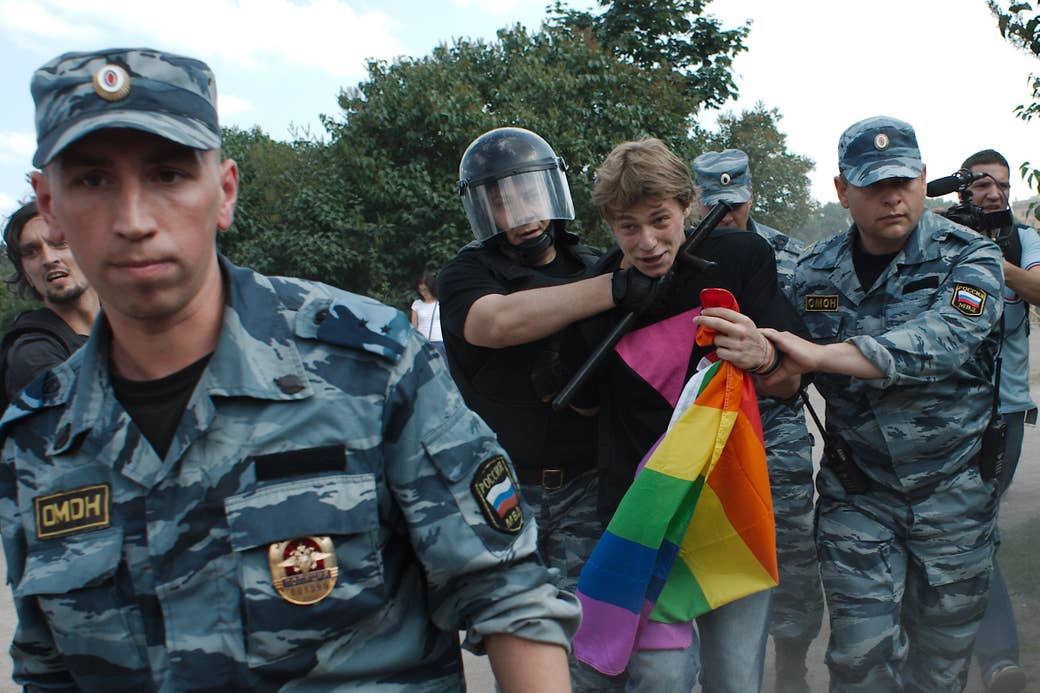
My first job at BuzzFeed News in 2013 was something of an experiment: We wanted to cover LGBTQ rights worldwide as seriously as we cover wars or elections.
Over the years that followed, I met LGBTQ refugees who’d fled ISIS in Syria, queer teens who escaped gang violence in El Salvador, and doctors in Japan trying to help win acceptance for transgender people. In retrospect, it seems obvious that these were stories that deserved to be told. But back in 2013, few big media companies had specialist reporters devoted to LGBTQ news in the US, let alone reporters trying to write about the issue around the world.
The US and the world were changing fast. Former president Barack Obama made promoting LGBTQ rights a key priority of US foreign policy during his first term in office, even before he came out in support of marriage equality. In June 2013, the US Supreme Court ruled that the federal government had to recognize marriage for same-sex couples. Four days later, Russian President Vladimir Putin signed legislation that became known as the “gay propaganda ban,” and sparked a global outcry.
Nearly 80 countries considered homosexuality a crime when the decade began — anti-LGBTQ violence and discrimination were common in many more — and the issue was almost completely ignored in international diplomacy. Now at the decade’s end, more than 30 countries have established marriage equality, transgender people have gained legal protections in several places for the first time, and a social revolution has brought LGBTQ people out of the closet across the globe.
This was the decade when it became clear that “gay rights are human rights,” as then-secretary of state Hillary Clinton said in a 2011 UN speech. But it was also the decade when the very notion that humans have universal rights came under attack. A new generation of antidemocratic leaders — including Clinton’s 2016 opponent, Donald Trump — declared war on the basic human rights framework put in place after World War II. In many cases, these leaders used rapid LGBTQ advances as ammunition to turn citizens against the principles of democracy itself.
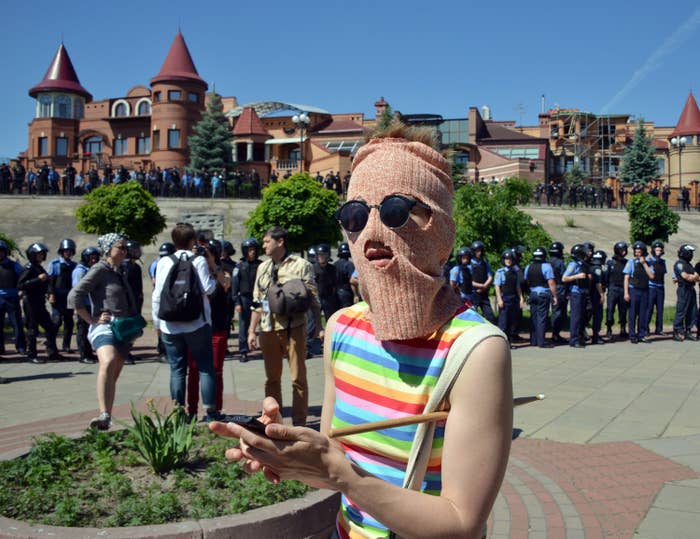
On my first trip as a reporter for BuzzFeed News, it became crystal clear to me that the fight over LGBTQ rights was about something much bigger.
This was a swing through Eastern Europe in October 2013 to see what impact Russia’s new anti-LGBTQ law was having on its neighbors. The “gay propaganda ban” was technically a law prohibiting teaching children about “nontraditional relationships,” but it became a tool to intimidate activist groups and suppress any demonstration of LGBTQ rights. It also helped make anti-gay sentiment a tool of Russian foreign policy the world is still struggling with today.
My trip ended in Ukraine, which was on the verge of signing a deal to formalize ties with the European Union. The deal would have required Ukraine to accept a broad suite of human rights protections, one of which was prohibiting employment discrimination against gays and lesbians. Putin and his allies wanted to derail a Ukraine–EU alliance at all costs.
The streets of the capital, Kyiv, were plastered with billboards that said things like “Association with the EU means same-sex marriage.”
These billboards were funded by a Ukrainian businessperson with such close ties to Putin that he made the Russian president godfather to his daughter. The claim that the EU treaty would force Ukraine to recognize marriage for same-sex couples was a lie, but it was a useful distortion. Anti-gay sentiment was the perfect way to trigger broad fear among Ukrainians that the human rights norms of Western democracies would strip the country of its identity.
“The EU will require Ukraine to expand its gay culture, and, instead of Victory Parades, gay parades will be held in Kyiv,” one top Russian lawmaker tweeted as the EU treaty signing approached.
By year’s end, the tug of war over Ukraine had ripped the country in two. When the country’s president bowed to Russian pressure and tried to walk away from the EU deal, a pro-European revolution drove him from office. In response, Russian-backed soldiers invaded and annexed one part of the country and fomented a war that still grinds on today. Across the internet in those days, propaganda sites pumped out all manner of stories claiming Russia had stepped in to protect Ukrainians from a “totalitarian” West.
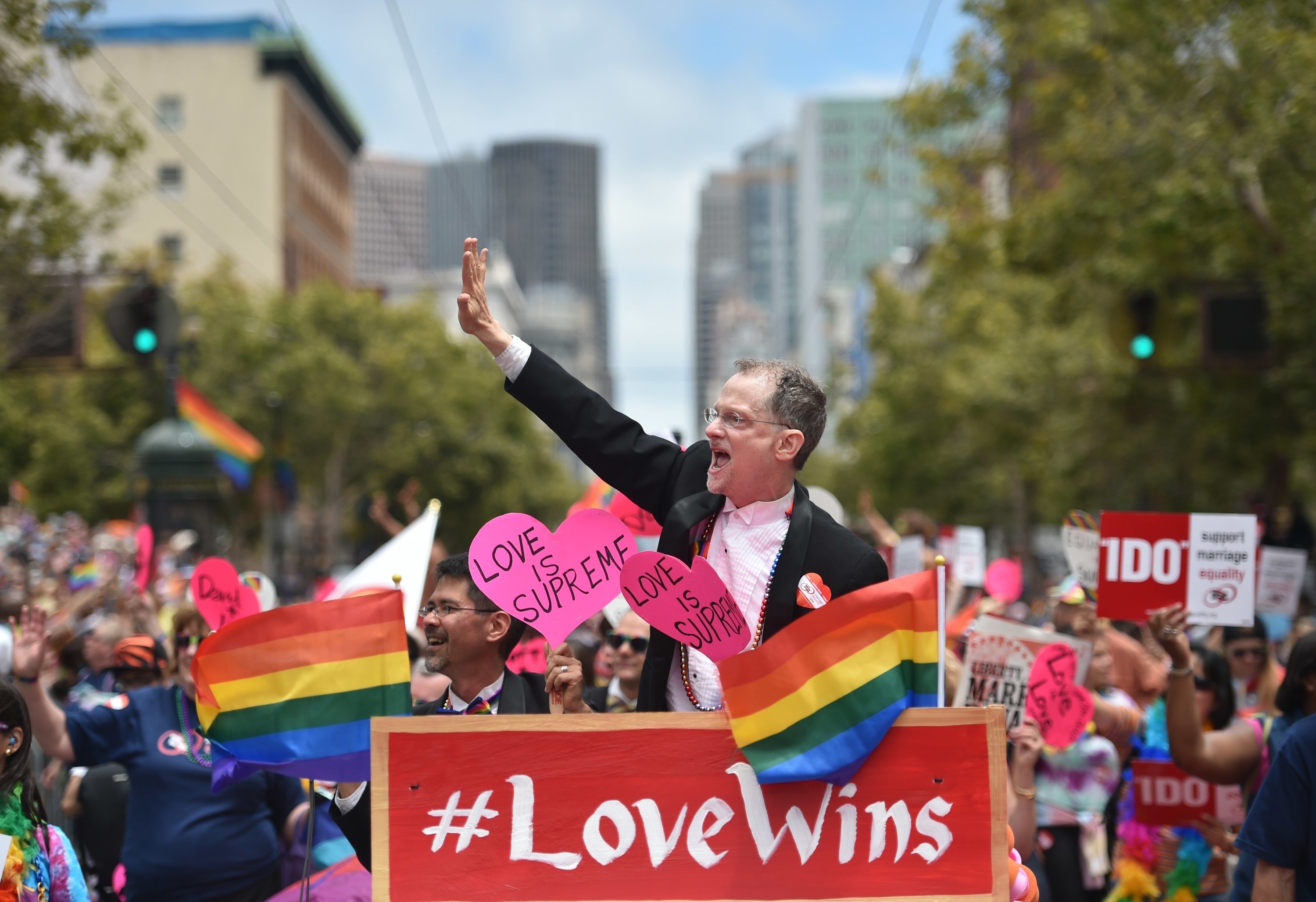
At the same time, Russia was scrambling to pry Ukraine away from the EU, it was making preparations to host the Winter Olympics in Sochi. This provided the perfect platform for Putin to use anti-gay sentiment to attack the credibility of countries that claimed to champion human rights. The lead-up to the games was dominated in the West by boycotts from activist groups in protest of Russia’s “gay propaganda” law; Obama lent his support to the campaign by skipping the opening ceremony in February 2014.
Putin treated this conflict as an opportunity. If countries like the US wanted to define human rights policies by supporting LGBTQ rights, he was all too happy to lead the counterattack on behalf of “traditional values.”
In one chilling incident, Russian state television broadcast a secretly recorded meeting between Russian activists and international NGOs like Human Rights Watch as part of a “documentary” warning of a “homosexualist invasion.” The Russian government also used this as an excuse to step up attacks on civil society, forcing LGBTQ rights organizations to identify themselves as “foreign agents” under a law also used against environmentalists and other human rights NGOs.
Over the years that followed, I covered one authoritarian regime after another that used anti-gay sentiment to discredit human rights advocates and Western democracies.
In Uganda, I sat through a five-hour “thanksgiving ceremony” in March 2014 after the country passed a sweeping anti-LGBTQ law, during which President Yoweri Museveni said anal sex caused the intestines to fall out and vowed to reject US money to fight HIV if it meant accepting “foreign things.” As in Russia, the Ugandan government stirred up panic about homosexuality to make it harder for NGOs to operate. Police restricted the operations of Uganda’s largest NGO, a refugee rights organization that also was part of a coalition fighting the anti-LGBTQ law, for allegedly “promoting homosexuality and lesbianism.” Authorities even raided an HIV center run by the US military.
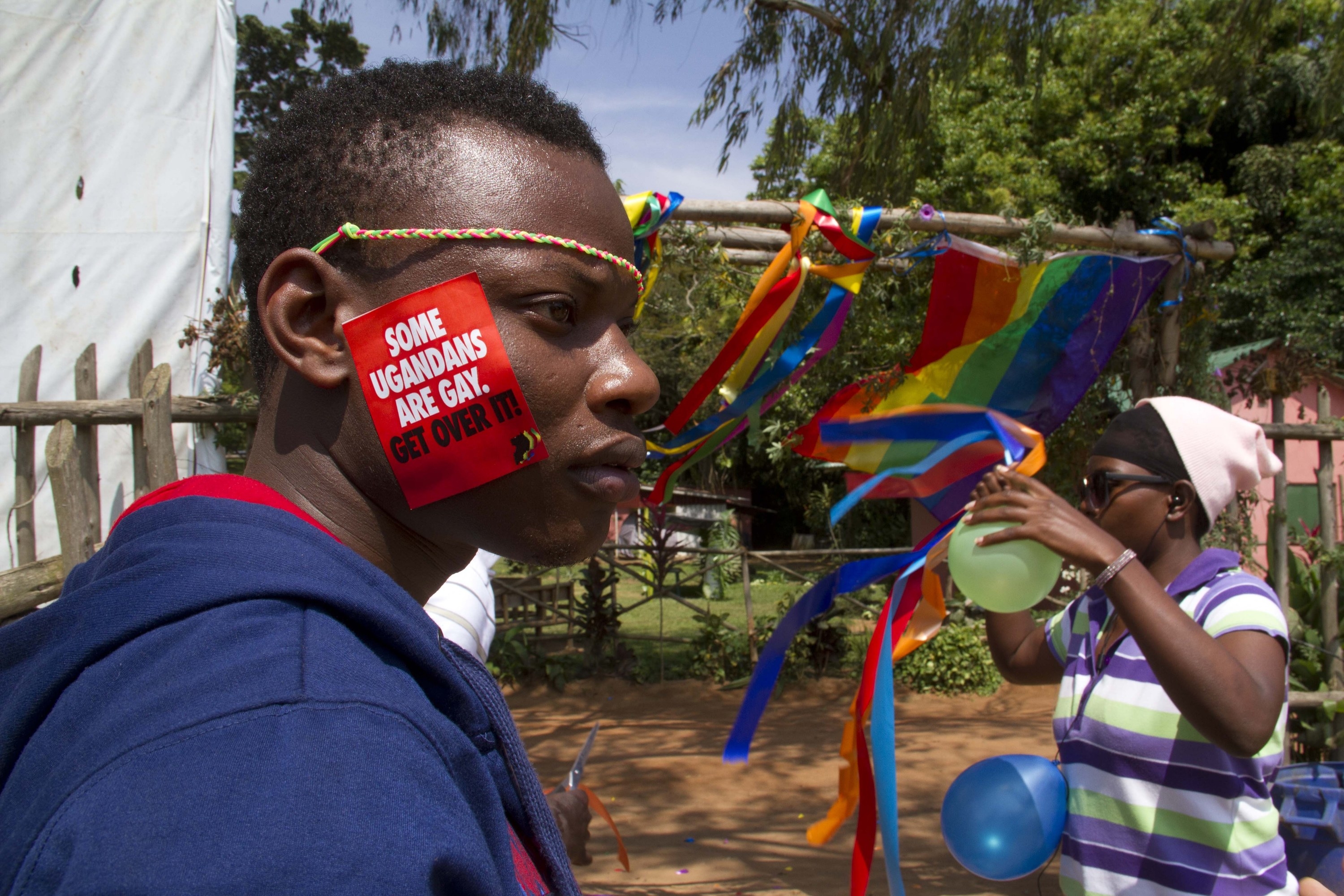
Assaults on LGBTQ rights — as well as moves against women’s rights and refugees — were increasingly at the center of geopolitical conflicts. Later in 2014, ISIS started promoting gruesome execution images of men it said were gay in an effort to portray itself as defending Islam against Western debauchery. In 2016, Turkey banned Istanbul Pride ceremonies — the largest Pride regularly celebrated in the Muslim world. The banishment coincided with President Recep Tayyip Erdoğan’s broader crackdown on public protest and free speech. Inside the EU, pride parades were attacked in Poland, which is led by a far-right government.
Anti-LGBTQ crackdowns predate this decade, of course — few in the last 10 years even made headlines outside their home countries. But never before did showdowns over anti-LGBTQ rights regularly rise to the highest levels of the world’s most powerful governments and institutions.
What might have once been local conflicts turned into diplomatic incidents. The World Bank responded to Uganda’s anti-LGBTQ law by suspending a $90 million loan; the UN Security Council responded to ISIS’s executions by holding its first-ever discussion on an LGBTQ rights issue; and an alliance led by five South American nations succeeded in pushing through a UN resolution to create an LGBTQ rights officer position, defeating an opposition that included Russia and blocs of African and Islamic countries.
Conservative nations, with help from the Vatican’s diplomatic corps, were simultaneously working to strike the word “gender” from other UN resolutions, believing the term opened the door to greater LGBTQ and women’s rights protections under international law. Anti-LGBTQ countries have also attempted to water down resolutions for other human rights issues by inserting language affirming “sovereignty,” a term that suggests local values or interests trump universal rights claims.
But as with women’s rights in the 1990s, despite opposition, LGBTQ rights in the 2010s were well on their way to becoming a core part of the international human rights system by the end of the Obama administration. Obama even created the world’s first special envoy for LGBTQ rights in the State Department and issued rules to prevent recipients of US foreign aid from discriminating on the basis of sexual orientation.
As he prepared to leave the White House, it seemed as if the world’s most powerful democratic governments would continue to look for ways to respond to threats to LGBTQ rights around the world.
And then Clinton, with help from Russia’s disinformation machine, lost the 2016 election to Trump.
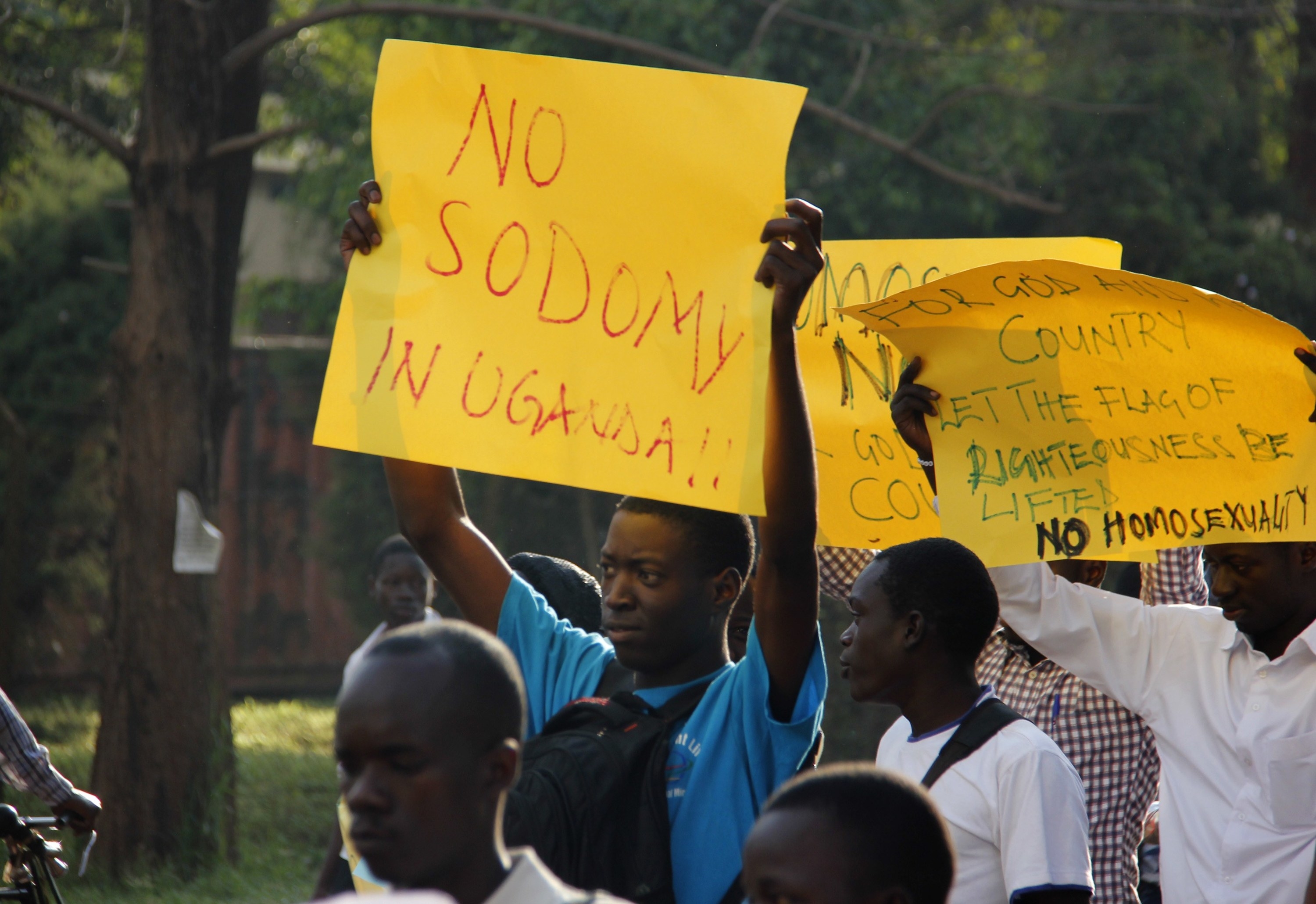
If Clinton’s 2011 “gay rights are human rights” speech represented what the decade promised in the beginning, Trump represents what the decade became in the end.
When the Trump administration talks about LGBTQ rights today, it comes across as gaslighting. He makes occasional noises about protecting LGBTQ people, but he also rolled back several protections for transgender people and had his Justice Department argue it should be legal to fire people for being gay. During his 2016 campaign, Trump copied a tactic of anti-immigrant politicians in countries like France and the Netherlands, using the issue exclusively as a justification to attack the rights of another minority. The best way to protect “the gays,” Trump said at the time, was to ban Muslims from entering the US.
As for other human rights, Trump has put immigrant children in cages along the southern border, denied asylum-seekers their rights under the Geneva Conventions, and turned a blind eye to the murder of a Saudi journalist in order to preserve lucrative weapons contracts. In a recent speech at the UN, he called for the repeal of sodomy laws but also called NGOs that work with immigrants “cruel and evil.”
While the US has not overtly renounced support for LGBTQ rights in international diplomacy, some human rights activists worry that day could still be coming. The White House was silent when news broke in 2017 that police in the Russian republic of Chechnya had kidnapped and tortured more than 100 LGBTQ people. Trump’s current secretary of state, Mike Pompeo, has called homosexuality a “perversion” and said during his confirmation that he still opposes marriage equality. Pompeo recently convened a new commission tasked with reining in a human rights regime he said had been “hijacked.”
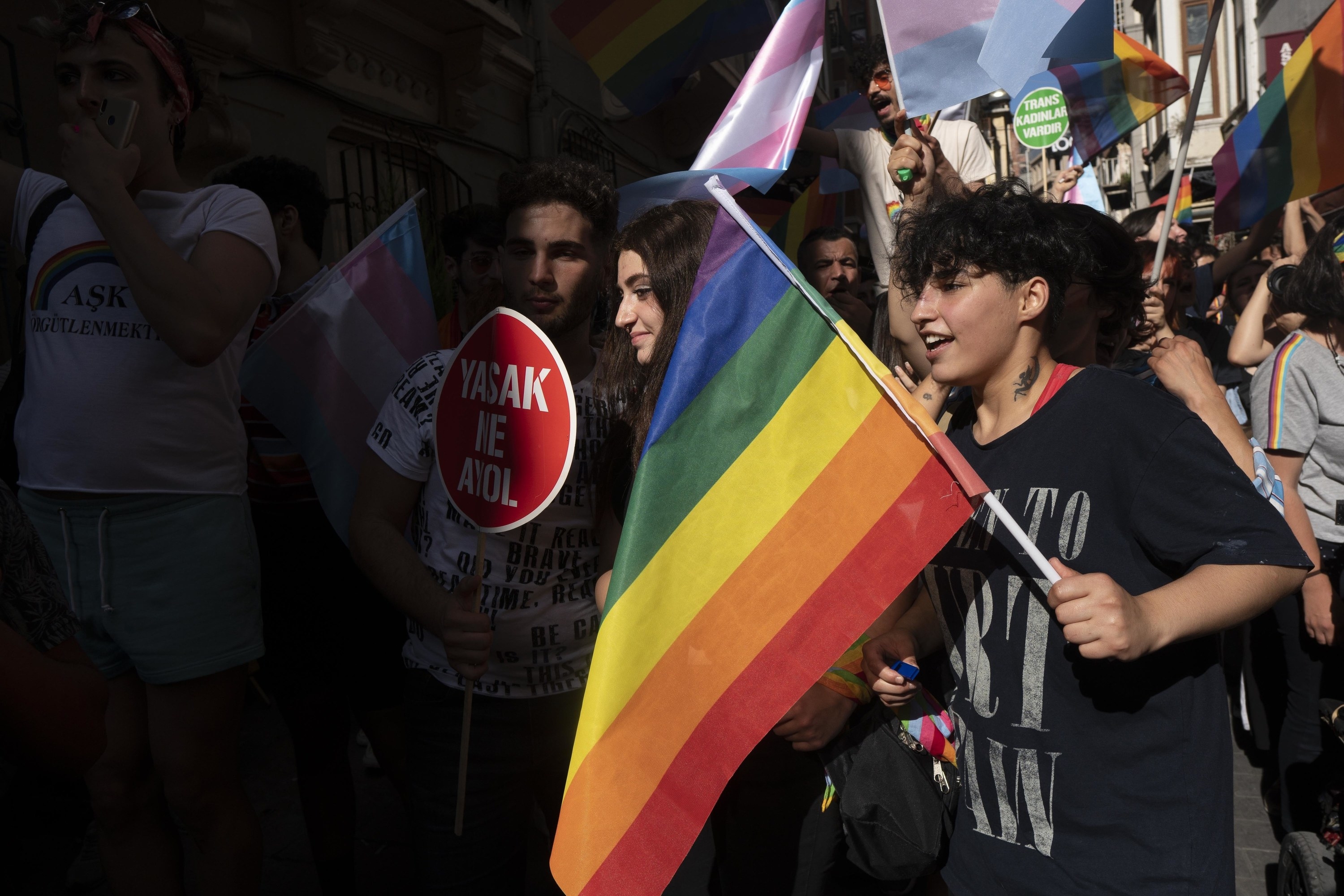
“Rights claims are often aimed more at rewarding interest groups and dividing humanity into subgroups,” he wrote in a Wall Street Journal op-ed announcing the commission.
The language used to describe the commission’s mission is “clearly code to not include gay rights and reproductive rights,” Mark Bromley, who leads the LGBTQ rights group the Council for Global Equality, told me earlier this month.
The US is not the only powerful government that has abandoned clear support for LGBTQ rights. Brazil, long a world leader the issue, has retreated under its far-right president, Jair Bolsonaro, who once said he’d rather his son were dead than gay and blasted a recent Supreme Court decision criminalizing LGBTQ discrimination. In nearly every country that has slid toward greater authoritarianism — including Hungary, Poland, China, and the US — LGBTQ rights have been a casualty.
This turn away by many governments has not erased the gains made, thanks to growing support at the grassroots. Australians defied their right-leaning government in 2017 to overwhelmingly approve a referendum to institute marriage equality. India’s Supreme Court issued a sweeping ruling in 2018 to decriminalize homosexuality at a time when the country’s president is a religious fundamentalist. And two more African countries, Angola and Botswana, decriminalized homosexuality this year.
“Once you have a taste that a better world is possible, you do not want to go back,” said Jessica Stern, executive director of OutRight Action International, which works with activists around the world and advocates for LGBTQ rights at the UN.
But it is growing even more dangerous in some places to demand rights, and activists can’t count on solidarity from the US the way they could just a few years ago.
“In this environment, there are fewer powerful states that we can count on, and there are more powerful states that are hostile to LGBTIQ rights,” Stern recently told me. “Russia, with its influence across the Middle East, China, and its influence everywhere.” It’s not just that the US is a “shadow of its former self” when it comes to defending human rights, she added — it’s now part of the problem.
“I am very worried about the next decade,” Stern said. “Every time I open my email or turn on my phone, someone I know personally is under attack.”●
